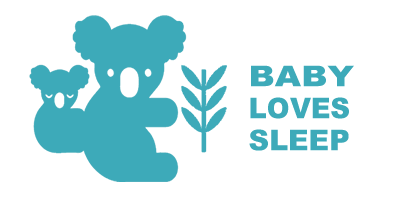Your Cart is Empty
$8 FLAT RATE SHIPPING USA | PAY IN 4 WITH SEZZLE
$8 FLAT RATE SHIPPING USA | PAY IN 4 WITH SEZZLE

The Aroma Snooze and COVID-19
March 16, 2020 4 min read
The Coronavirus also known as COVID-19 is the biggest news right now across the globe.
Lets start with some facts about the Coronavirus (COVID-19):
- There is currently no vaccine to prevent Coronavirus (COVID-19).
- The best way to prevent illness is to avoid exposure to this virus.
- The virus is thought to spread mainly from person-to-person:
- Between people who are in close contact with one another (within about 6 feet).
- Through respiratory droplets produced when an infected person coughs or sneezes.
- These droplets can land in the mouths or noses of people who are nearby or possibly be inhaled into the lungs.
- Older adults and people who have severe underlying chronic medical conditions like heart or lung disease or diabetes seem to be at higher risk for developing more serious complications from COVID-19 illness.
How to protect ourselves and prevent the spread of the Coronavirus COVID-19
All over the world, the message is clear on what we all need to do to protect ourselves - wash hands often, use a sanitizer, cover coughs and sneezes, avoid touching your face, and so on and so forth - you'll find a comprehensive and detailed list further below.
But we did some research on what else can help. We looked specifically at air ionizers and how these could possibly have a role in preventing virus infection. And we have some good news for you!
How air ionizers stop airborne viruses
Viruses, like influenza and coronavirus, are spread through floating particles and microscopic water droplets when an infected person coughs or sneezes. These droplets can remain in the air for long periods, according to scientists.
An air ionizer machine like the Aroma Snooze generates negative ions, that are electrostatically attracted to positively charged airborne particles and droplets and attaches to them in large numbers.
What are negative ions
Just to get technical for a second, negative ions are oxygen atoms charged with an extra electron. In layman terms, negative ions are created in nature by the effects of water, air, sunlight and the Earth’s inherent radiation, in particular around moving water or after a thunderstorm, and is nature's amazing way of protecting against harmful airborne particles.
What do negative ions do
Negative ions purify the surrounding air of mold spores, pollen, pet odors, cigarette smoke, bacteria, viruses, dust and other hazardous airborne particles - all of these are known as positive ions.
Negative ions when released in the air, attach to these positively charged particles causing the germs, mold, pollen and other allergens to become too heavy to stay airborne and they drop off to the ground so that they are no longer in the air that you breathe.
This scientific study found a negative ionizer offered “effective prevention of airborne transmitted influenza A virus infection” and “enables unique possibilities for rapid and simple removal of virus from the air”.
Where can you get an air ionizer
Good news for you, our Aroma Snooze 6-in-1 sleep machine has a built in air ionizer that helps purify the air that you breathe and does exactly what an air ionizer does.
Of course, an air ionizer alone does not protect you from the Coronavirus if an infected person sneezed or coughed directly on you. However, it is certainly useful against viruses floating in the air and effective for use in shared spaces such as the work place, class rooms, day care centers, community halls or any place where large or small groups of people congregate.
Please remember, the best way to protect and prevent spreading the virus is to follow the recommendations of medical authorities on prevention, these include regular hand washing, covering coughs and sneezes and avoiding contact with people suffering from COVID-19.
Here are the recommended ways to protect yourself and prevent potential spreading of the virus:
Clean your hands often
- Wash your hands often with soap and water for at least 20 seconds (to the whole tune of happy birthday) especially after you have been in a public place, or after blowing your nose, coughing, or sneezing.
- Use a hand sanitizer that contains at least 60% alcohol. Cover all surfaces of your hands and rub them together until they feel dry.
- Avoid touching your eyes, nose, and mouth with unwashed hands.
Avoid close contact
- Avoid close contact with people who are sick.
- Distance yourself between other people if COVID-19 is spreading in your community. This is especially important for people who are at higher risk of getting very sick.
Stay home if you’re sick
- Stay home if you are sick, except if you need to get medical care. Learn what to do if you are sick.
Cover coughs and sneezes
- Cover your mouth and nose with a tissue when you cough or sneeze or use the inside of your elbow.
- Throw used tissues in the trash.
- Wash your hands immediately.
If you are sick
- Wear a facemask if you have to be around other people for example before you enter a healthcare provider’s office. If you are unable to wear a facemask (for example, because it causes trouble breathing), then you should do your best to cover your coughs and sneezes. Learn what to do if you are sick.
Subscribe
Sign up to get the latest on sales, new releases and more …
